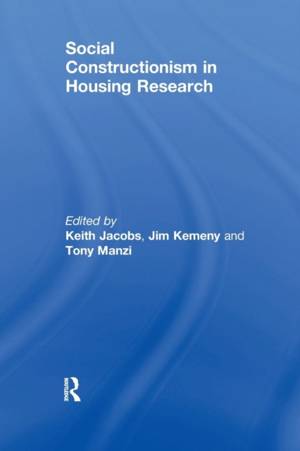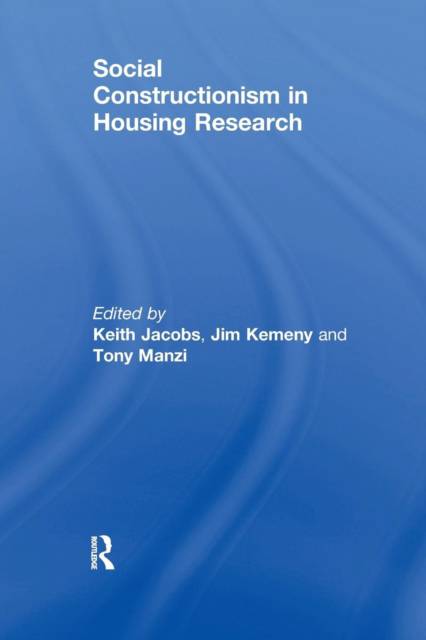
- Afhalen na 1 uur in een winkel met voorraad
- Gratis thuislevering in België vanaf € 30
- Ruim aanbod met 7 miljoen producten
- Afhalen na 1 uur in een winkel met voorraad
- Gratis thuislevering in België vanaf € 30
- Ruim aanbod met 7 miljoen producten
Zoeken
€ 119,45
+ 238 punten
Uitvoering
Omschrijving
By stressing the importance of subjectivity and interpretation, social constructionism offers a different conception of reality from the traditional approach to housing policy analysis. This book provides an up-to-date review of the social constructionist perspective and considers its philosophical basis. It discusses how social problems are constructed and, in turn, how this informs policy-making. It is divided into two parts. The first section is theoretical and discusses the variety of conceptual approaches utilised within the constructionist paradigm. The second part provides a number of empirically based case studies from the UK and Australia to illustrate the different methodologies that form the social constructionist corpus. The book also evaluates both the criticisms that have been made against the social constructionist perspective and the strengths and weaknesses of constructionist methods. It therefore contributes to the development of a future research agenda for social constructionist research in housing and urban policy.
Specificaties
Betrokkenen
- Auteur(s):
- Uitgeverij:
Inhoud
- Aantal bladzijden:
- 230
- Taal:
- Engels
Eigenschappen
- Productcode (EAN):
- 9781138274327
- Verschijningsdatum:
- 27/02/2017
- Uitvoering:
- Paperback
- Formaat:
- Trade paperback (VS)
- Afmetingen:
- 156 mm x 234 mm
- Gewicht:
- 276 g

Alleen bij Standaard Boekhandel
+ 238 punten op je klantenkaart van Standaard Boekhandel
Beoordelingen
We publiceren alleen reviews die voldoen aan de voorwaarden voor reviews. Bekijk onze voorwaarden voor reviews.







